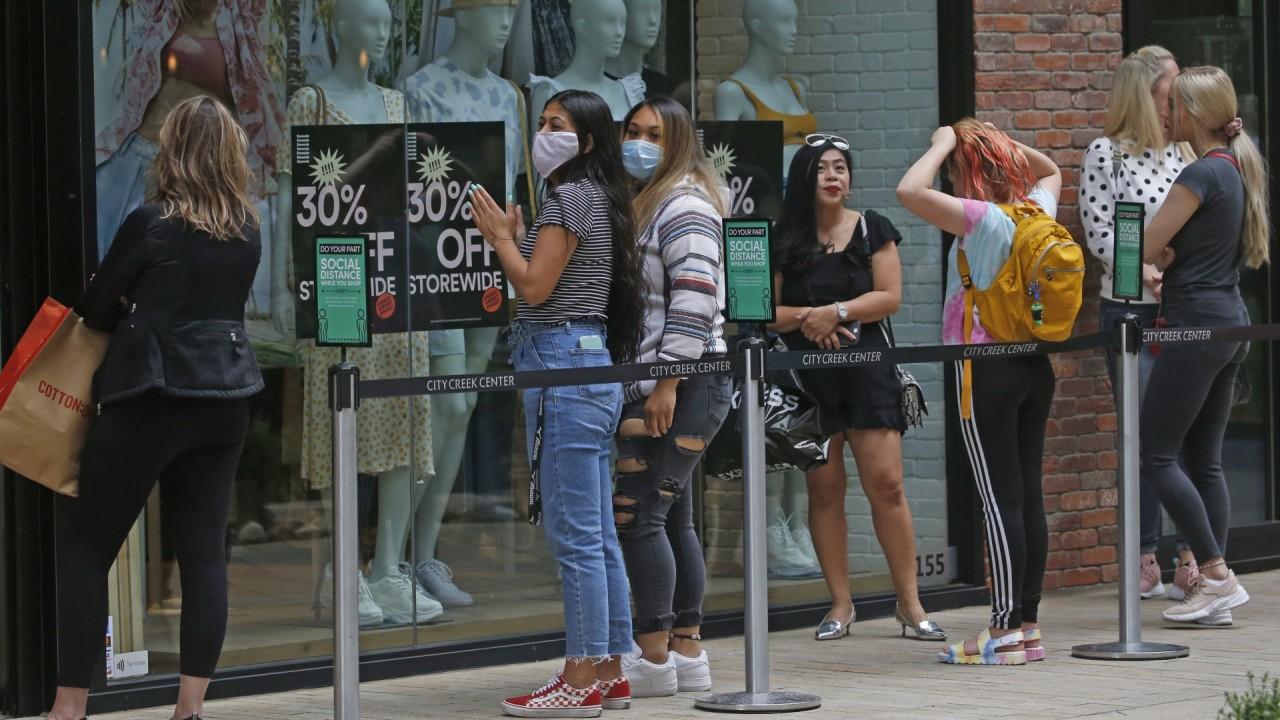Second coronavirus outbreak could trigger severe economic pain, OECD says
The U.S. economy is expected to plunge by 7.3 percent this year, unless there's a second outbreak
A second coronavirus outbreak, and another round of lockdowns, could inflict deep damage on a global economy that is already in the throes of the most severe recession since the Great Depression, the Organization of Economic Cooperation and Development said Wednesday.
In a grim quarterly outlook, the Paris-based organization forecast a global slump of 6 percent this year before recovering with 5.8 percent growth next year. But that’s based on a forecast where a second wave of infections is avoided; in an equally likely scenario, where a resurgent virus triggers a return to shutdowns, the OECD said output could plummet by 7.6 percent this year before only growing by 2.8 percent in 2021.
GEORGIA WAS THE FIRST US STATE TO REOPEN. WHAT DOES ITS ECONOMY LOOK LIKE NOW?
The U.S. economy is expected to plunge by 7.3 percent this year before expanding by 4.3 percent in 2021. In the event of a second wave, the nation’s economy -- the world’s largest -- would likely shrink by 8.4 percent and grow by 1.9 percent next year. France, the United Kingdom, Spain and Italy are expected to see the sharpest economic contractions this year, according to the OECD, which represents the world’s biggest economies.
“By the end of 2021, the loss of income exceeds that of any previous recession over the last 100 years outside wartime, with dire and long-lasting consequences for people, firms and governments,” OECD chief economist Laurence Boone said in a statement.
US JOB GROWTH ROARED BACK IN MAY: THESE INDUSTRIES SAW THE BIGGEST GAINS
Even if a renewed outbreak is avoided, the recovery will likely remain protracted as business restrictions and social distancing guidelines remain in place.
The OECD said the global recovery, after an initial resumption of activity, will take a long time to return to pre-pandemic levels. The crisis may also leave long-lasting scars: A fall in living standards, high unemployment and weak investment. Job losses will be heavily concentrated in sectors such as tourism, hospitality and entertainment and will largely affect low-skilled, young workers.
On top of that, businesses in exposed sectors like travel have built up sizable debts. Non-financial corporate debt in the U.S. is currently around 140 percent of the nation’s total GDP; as a result, some businesses are expected to face liquidity and solvency issues, potentially triggering large-scale firm liquidation and hurting the prospects of a speedy recovery.
WHAT HAPPENS TO YOUR UNEMPLOYMENT BENEFITS IF YOU REFUSE TO GO BACK TO WORK?
Governments have spent trillions, an unprecedented amount, to help workers and companies survive the crisis, but Boone urged lawmakers to continue supporting low-paid workers and those who are most vulnerable to sustain the recovery.
“Ultra-accommodative monetary policies and higher public debt are necessary and will be accepted as long as economic activity and inflation are depressed, and unemployment is high,” Boone said.
GET FOX BUSINESS ON THE GO BY CLICKING HERE




















